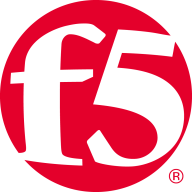


F5 Advanced WAF and Check Point CloudGuard WAF compete in the web application firewall market. While F5 Advanced WAF offers extensive features, its higher cost may deter smaller enterprises, making Check Point CloudGuard a more cost-effective option with easy integration for cloud environments.
Features: F5 Advanced WAF provides anti-bot protection, DDoS mitigation, and IP intelligence, which contribute to its robust security framework ideal for enterprise-level deployments. Check Point CloudGuard WAF focuses on API security, intrusion prevention, and AI-enhanced threat detection, making it suitable for cloud-native environments and known for its seamless API integration.
Room for Improvement: F5 Advanced WAF could improve in user interface design and report generation for better user experience and integration. The complexity of setup and pricing is also challenging for users. Check Point CloudGuard users have noted lag in administrative interfaces and insufficient documentation, suggesting areas for streamlined support and improved user guidance.
Ease of Deployment and Customer Service: F5 Advanced WAF is commonly used in on-premises and hybrid environments but can be complex without expertise. While the technical support is sound, some users experience delays. Check Point CloudGuard is preferred for cloud environments, praised for easy deployment and robust API integration, though support times can vary.
Pricing and ROI: The higher pricing of F5 Advanced WAF limits accessibility for smaller companies, though its comprehensive security features deliver a high ROI for those who can afford it. Check Point CloudGuard offers more competitive pricing, appealing to a broader range of budgets, and provides good ROI through integration with existing cloud infrastructure at a fraction of the cost.
WordPress security can be tricky, and that's where Cloudflare can be absolutely helpful for small businesses.
For the small project I was working on, using the basic tier provided a huge improvement at zero cost.
In terms of return on investment with Cloudflare, it costs my time to set them up, but basically once they're set up, it's done.
When we are attacked, we can understand how important the solution is.
When you migrate to the cloud, it feels like saving 90% of your time.
Most of the operations happen in the background, so I do not spend much time on it.
Subscription models offer clearer ROI due to a more competitive pricing scheme.
This would help us address issues promptly, especially during unforeseen events like DDoS attacks.
Cloudflare does not offer hands-on technical support to fix customer problems but rather a self-service model.
I would rate the technical support with Cloudflare as excellent every time I've had to call them.
They need to increase the number of people for 24/7 support.
They were responsive even before we committed to buying their solution.
I also received full technical support, especially during the implementation.
If there is a bug, the support is usually understanding and resolves issues.
I have interacted with F5's support, and while I have no major complaints, they could improve.
It is a SaaS tool, but the fact that they have workloads deployed across the world proves that it is a highly scalable tool.
The tool offers very good performance, even during high-traffic periods.
I rate the solution’s scalability an eight out of ten.
If I need to scale, I open a Whatsapp group with the director and the team, and we quickly proceed to do so.
They have sufficient resources, and there are no challenges from a scalability perspective.
For DDoS protection, I would not recommend Cloudflare.
I rate the solution’s stability an eight out of ten.
The service is very stable with no impacts during high-traffic periods.
It is very stable.
It is very stable, never crashing or giving me an error that I can see.
I did not have any issues in the last three years during which I had more than ten critical services running on CloudGuard.
There's a need for improvement in areas like AI-based DDoS attacks and Layer 7 WAF features.
Despite these challenges, overall, Cloudflare remains the preferred solution compared to Azure, AWS CloudFront, and Google Cloud Armor.
Areas like how assessment, discovery, and payload are dealt with and how it all comes into your organization can be considered when trying to make suggestions to Cloudflare for improvements.
The provider could improve by providing better guidance and support during the configuration process.
Future releases should include better bot mitigation, behavioral anomaly detection, compliance templates, advanced threat intel integration, and streamlined multi-cloud support to boost protection and usability.
A machine learning-based adaptive mode could help the WAF learn over time and auto-tune policies.
Deployment training for F5 Advanced WAF is lacking and restricts growth by being inaccessible and costly for partners.
That's where Cloudflare shines for smaller businesses – it's ten times cheaper than Akamai.
I find it to be cheap.
The pricing for the service is reasonable, neither excessively cheap nor prohibitively expensive.
It is more expensive than f5, where we purchased everything as bundles, and Check Point costs more, but it is worth the money.
It is less costly than Cloudflare, Fortinet, and other vendors.
I know that its price is relatively expensive compared to other products but it gives benefits that are worth it.
Subscription models have competitive pricing, while perpetual licenses involve an upfront higher cost.
The price is affordable and satisfactory.
The most valuable features of the solution are performance and security.
Techniques like minification and image compression reduce the size of assets, leading to better performance and faster user load times.
The solution has been able to compare it to the market, and I think the product has taken great strides in automating quite a bit of things, and they use a lot of AI.
Upon implementation and evaluation with third-party penetration testing, it meets rigorous security standards required for dealing with financial institutions.
It can protect against zero-day attacks and hidden anomalies.
The solution preemptively blocks zero-day attacks and detects hidden anomalies effectively.
The perpetual license, despite an initial higher cost, lacks transparency regarding support expiration.
It contains the logic of both negative and positive security combined.



| Company Size | Count |
|---|---|
| Small Business | 46 |
| Midsize Enterprise | 8 |
| Large Enterprise | 25 |
| Company Size | Count |
|---|---|
| Small Business | 27 |
| Midsize Enterprise | 18 |
| Large Enterprise | 16 |
| Company Size | Count |
|---|---|
| Small Business | 25 |
| Midsize Enterprise | 14 |
| Large Enterprise | 29 |
Cloudflare is a highly-regarded Content Delivery Network (CDN) and a Distributed Denial-of-Service (DDoS) protection solution. The robust global connectivity cloud platform that is Cloudflare ensures users are able to connect to the Internet quickly, securely, and reliably. Cloudflare is one of the world's largest networks in the marketplace today. Using Cloudflare, businesses, educational entities, NGOs, vloggers, bloggers, and anyone else with an internet presence can experience more secure, faster websites and applications.
Currently, there are millions of Internet locations on Cloudflare, and the Cloudflare network
continues to grow every day by the thousands. The solution is able to fulfill the requests for
millions of websites seamlessly and serves on average 45 million HTTP requests per second.
Cloudflare has safe, secure data centers in close to 300 cities worldwide to ensure every
client request is filled as quickly as possible. It is Cloudflare’s edge network that makes this
possible by keeping content and other services as close to each client as possible, so the
information requests are always only seconds away.
Many organizations that work in democracy, civil society, human rights, or the arts are able to
access Cloudflare's highest levels of protection for free via Project Galileo. Additionally, official
election websites can be secured from hacking and fraud through Cloudflare’s Project
Athenian, also at no additional cost.
Cloudflare can also help organizations of all sizes develop a robust zero-trust strategy to
ensure the highest levels of productivity and profitability. Employees, stakeholders, and end users have a greater level of satisfaction and overall improved user experience, which can, in
turn, result in higher revenues and overall ROI. Zero-trust and BYOD (bring your own device)
access ensure end users and employees always have the best resources and technology
available to them at all times.
Cloudflare benefits
Cloudflare has many benefits. Some of its most valuable benefits include:
- Faster load times
- Robust DNS security
- Intuitive cloud Web Application Firewall (WAF)
- Free universal SSL
- Image enhancement
- Automatic browser caching
- Next-generation cloud load balancer
- Accelerated Mobile Pages (AMP)
- Rate limiting
- Minification
- Zero-trust capabilities
- Cost-effective
- Reduced carbon footprint
Reviews from real users
“Many websites require an SSL certificate because they sell stuff and want SSL. Cloudflare
comes with an SSL certificate built in. It's automatic. You sign yourself up for Cloudflare, and
an SSL certificate automatically protects your website. If you have a connection between your
website and your host, the server, Cloudflare, and the host, you don't necessarily need a
certificate.” Spencer M., Owner at Tech Exchange
“What I like best about Cloudflare is that my company can use it to trace and manage
applications and monitor traffic. The solution tells you if there's a spike in traffic. Cloudflare
also sends you a link to check your equipment and deployment and track it through peering,
so it's a valuable tool.” Daniel P., Network Engineer at Ufinet
“The most valuable feature of Cloudflare is the GUI. You are able to control the solution very
well through the interface. There is a lot of functionality that is embedded in the service.” PeerSpot user, Competence Center Manager at a tech services company
Check Point CloudGuard WAF offers advanced security for web applications and APIs with features such as intrusion prevention, bot prevention, and AI-driven threat detection, ensuring organizations achieve high-level protection and efficient security management.
Check Point CloudGuard WAF integrates with APIs, providing a seamless security enhancement while reducing false positives. Its scalability supports rapid deployment, valuable for companies aiming to secure resources in clouds like AWS and Azure. Enhanced threat prevention, comprehensive compliance support, and advanced threat protection methods such as SQL injection and cross-site scripting prevention are key strengths. Despite its robust capabilities, there are opportunities for improvement, such as lower costs, improved third-party tool integration, and a more intuitive interface to enhance usability.
What are the key features of Check Point CloudGuard WAF?Check Point CloudGuard WAF is predominantly applied within industries requiring stringent security standards, such as financial services, healthcare, and e-commerce. Its deployment strengthens the defense of critical APIs, facilitates compliance, and supports efficient multi-cloud security management, aligning well with evolving industry demands.
F5 Advanced WAF is a web application security solution for financial and government sectors, e-commerce, and public-facing websites. It offers protection against various attacks, including botnets, web scraping, and foreign entities. The solution can be deployed on-premises or in the cloud and is often used with other security tools. Its most valuable features include DDoS and DNS attack protection, SSL uploading, anomaly detection, and the ability to input custom rules.
F5 Advanced WAF has helped organizations to expose more services to the public while providing an extra layer of protection, preventing revenue loss, and securing connectivity.
We monitor all Web Application Firewall (WAF) reviews to prevent fraudulent reviews and keep review quality high. We do not post reviews by company employees or direct competitors. We validate each review for authenticity via cross-reference with LinkedIn, and personal follow-up with the reviewer when necessary.